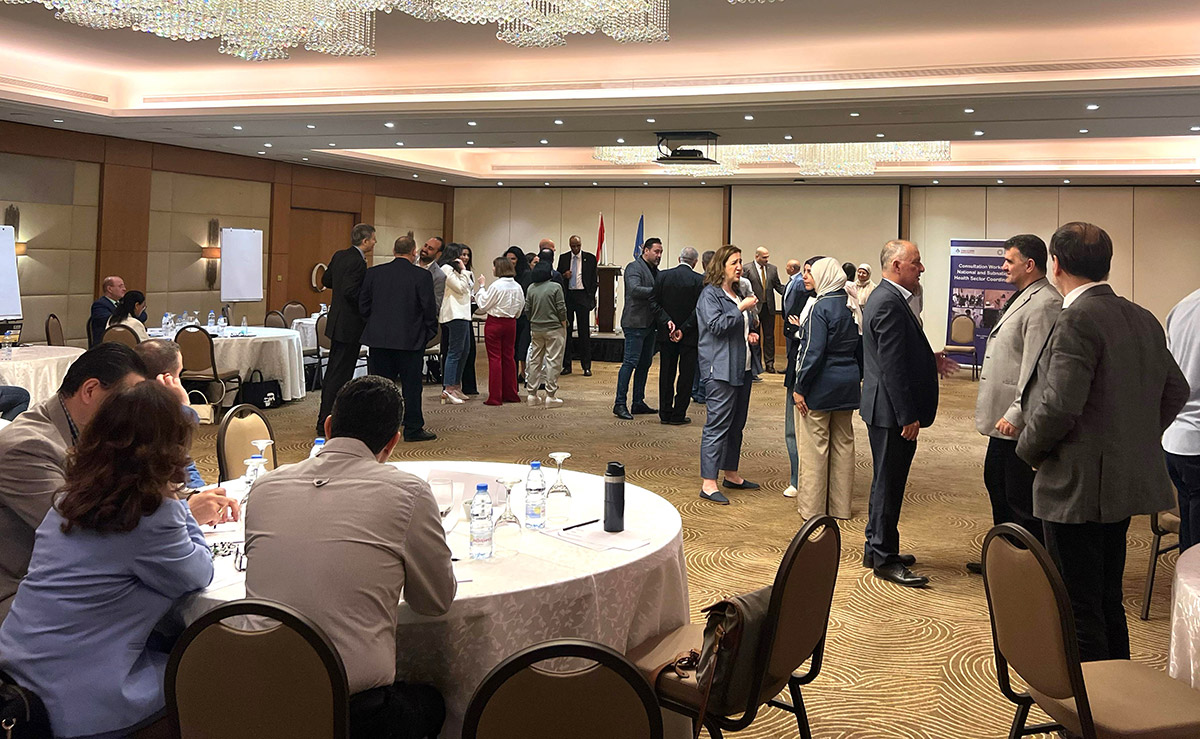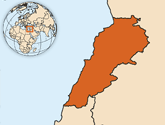
28 April 2025 – In a step towards enhancing Lebanon’s health sector governance, the Ministry of Public Health convened a national–subnational health sector coordination workshop led by H.E. the Minister of Public Health Dr Rakan Nassereldine.
The workshop marked a pivotal moment in the country’s journey towards establishing a fit-for-purpose coordination architecture that promotes unified leadership from the national level down to the field. Spearheaded by the national health sector coordination team, the event which took place last week, aimed to address the longstanding disconnect between humanitarian health responses and the government-led architecture on the ground.
While national-level coordination has consistently been under the leadership of the Ministry of Public Health –especially evident during recent crises – gaps remain in field-level alignment and implementation.
The primary objective of the workshop was to bridge these gaps by fostering dialogue among key stakeholders, promoting mutual understanding and ensuring that all actors –including those who have long been embedded in community-level response – are included in shaping the coordination model. The event brought together diverse participants, including governorate chief doctors, district (kada) physicians, line directors from the Ministry, members of the health sector core group and representatives from related sectors such as education, nutrition and water, sanitation and hygiene (WASH).
The workshop was originally scheduled for September 2024 but faced delays. Nonetheless, the timing of its eventual realization proved fortuitous. With the United Nations stepping back from its decade-long leadership role in Lebanon's health sector coordination, the government has begun to assert greater leadership, a development the workshop sought to harness and build upon.
Dr Nassereldine’s opening address emphasized the importance of ownership, responsibility and vision from the Ministry of Public Health, reaffirming its commitment to lead a more integrated and responsive health system, while representatives from the World Health Organization and UN agencies emphasized the importance of international support and technical collaboration.
The workshop recognized the rapidly evolving global humanitarian landscape, shaped by funding constraints, shifting geopolitical priorities and regional dynamics. In this context, Lebanon’s health sector once again set a precedent, becoming the first to organize such an inclusive forum aimed at harmonizing national and subnational strategies.
A key outcome of the workshop is the commitment to produce a detailed report accompanied by a set of recommendations. These will feed into a roadmap, expected within the next 2 to 4 weeks, defining the structure of health sector coordination across the country. This roadmap will outline roles, responsibilities, division of tasks and support mechanisms, ensuring that the Ministry of Public Health is neither overwhelmed nor unsupported.
Another major deliverable will be a structured capacity-building programme. Recognizing that effective coordination needs adequate preparation, the health sector team is developing a blended training model. This will include mandatory courses for health coordinators, on-the-job training and ongoing technical support, drawing on global best practices in health cluster management.
As the country moves forward, the commitment from Lebanon’s Ministry of Public Health, with support from the humanitarian community and generous donors, lays a strong foundation for a more unified, efficient and resilient health sector. This initiative not only strengthens the local response but also aims to leave a lasting legacy of empowered national leadership in health coordination.








